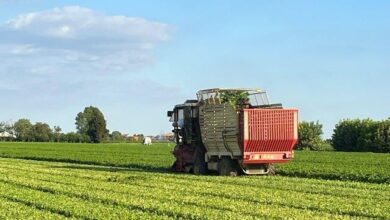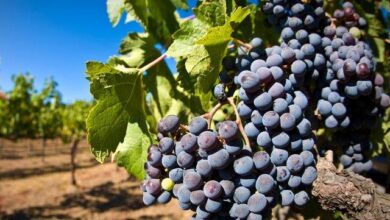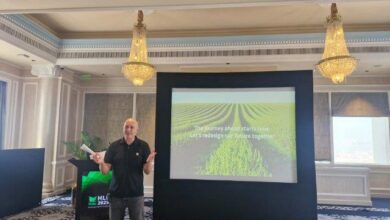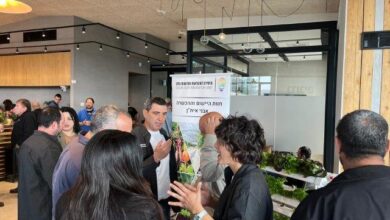New Israeli cooperation is set to boost the future of the aquaculture industry
Zemach Feed Mill and ECOshrimp are to jointly develop a special feeding formula for growing shrimp in a closed land-based system
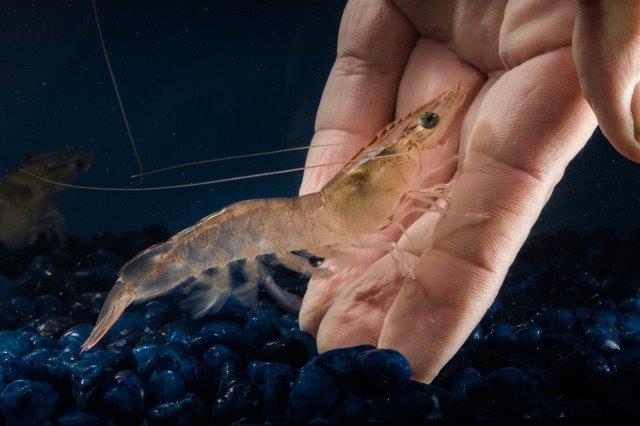

zemach feed mill and ecoshrimp are collaborating on the development of a unique, dedicated food blend for super-intensive shrimp cultivation in a closed recirculating aquaculture systems (ras) system.
the new collaboration will be based on a unique blend that provides a healthy diet for shrimp, which has already been developed at zemach’s r&d laboratories. the development process will be continued in coordination with ecoshrimp, which will define the necessary parameters – including the feed testing phase – and monitor and collect data at its own growing facilities.
“the new collaboration is another step-in positioning zemach, which is already the largest food supplier in israel for fish farming, as a leading company in the world of aquaculture in general,” says dr. shlomo pleban, r&d manager of zemach feed mill. “the food blend will be carefully designed by the r&d department and in collaboration with our nutrition department to suit the intensive ecoshrimp growing system at all stages of the shrimp life cycle, meeting the high standards required to grow fresh and healthy produce, without the use of antibiotics and chemicals.”
shrimp farming in the aquaculture industry began to grow as a commercial sector in the 1970s, and since then there have been advances in production methods, leading to a significant increase in global production volume. production currently stands at around 5 million tons per year, with a market value of around $30 billion.
most production is currently carried out according to traditional methods, in shallow pools over large areas along beaches in warm regions, such as south america and south asia. as well as involving the use of antibiotics and chemicals, this creates enormous environmental damage. what’s more, these growing centers are distant from the markets with high demand, such as north america, europe and japan, which import over 80% of their consumption. meanwhile, general production costs have increased, transportation has become more expensive, and a combination of regulatory conditions and public awareness about food quality, health and sustainable crops have introduced pressure on growers to modernize their methods.
consequently, in recent years there has been a great effort to develop technology that will enable the transition to closed grow-out systems, which can be established in high-demand areas, and provide local, healthy and fresh produce, in a sustainable way, and without requiring freezing and long-distance transportation.
ecoshrimp has been operating its r&d facility at kibbutz revivim, in the middle of the israeli desert, since 2016, producing a few tons of shrimp a year. the company will soon begin construction of a commercial facility in the area, which will initially produce about 33 tons of shrimp, with an option to expand production to about 100 tons per year. this will be the precursor to a series of large facilities under construction abroad, in which ecoshrimp intends to take partnership, being involved in the production process through remote monitoring, while providing the most dedicated food adapted to the growing method.
“the closed system developed by ecoshrimp has significant environmental, health and economic benefits over traditional cultivation, which is currently carried out in shallow pools near the sea, utilizing large areas of great ecological importance, such as mangrove forests,” says dr. eran hadas, cto of ecoshrimp. “in recent years, whole crop cycles have been destroyed after ponds have been infected with disease. to prevent these effects, most growers use chemicals and antibiotics that can severely affect product quality, with residues potentially reaching the final consumer.
“ecoshrimp’s ras technology is an innovative system that is efficiently and economically controlled and does not depend on proximity to a water source or climatic conditions. it enables shrimp to be fed artificially and in a controlled manner, without the use of chemicals and antibiotics, until they reach a market weight of up to 25 grams, within 15 weeks uniform growth – and all this close to market.”
as well as the environmental benefits, ecoshrimp’s ras system operates continuously, making it possible to harvest produce weekly and market it fresh throughout the year.
zemach feed mill is one of the largest factories in israel for the production of quality and healthy feed for livestock and pets, and the largest for the production of food for edible fish. the plant is owned by 47 cooperative farms from the jordan valley, the springs valley and the golan heights. in recent years, sophisticated r&d laboratories have been established at zemach conducting physical and chemical tests to ensure food quality according to the most stringent standards – including haccp, fssc 22,000 and iso9001 – in order to produce precise and healthy products for animals, farms and pets.
together, zemach and ecoshrimp see this collaboration as an opening for their positioning at the forefront of the developing closed-system shrimp-growing industry, offering adapted and dedicated food worldwide, for the first time.

